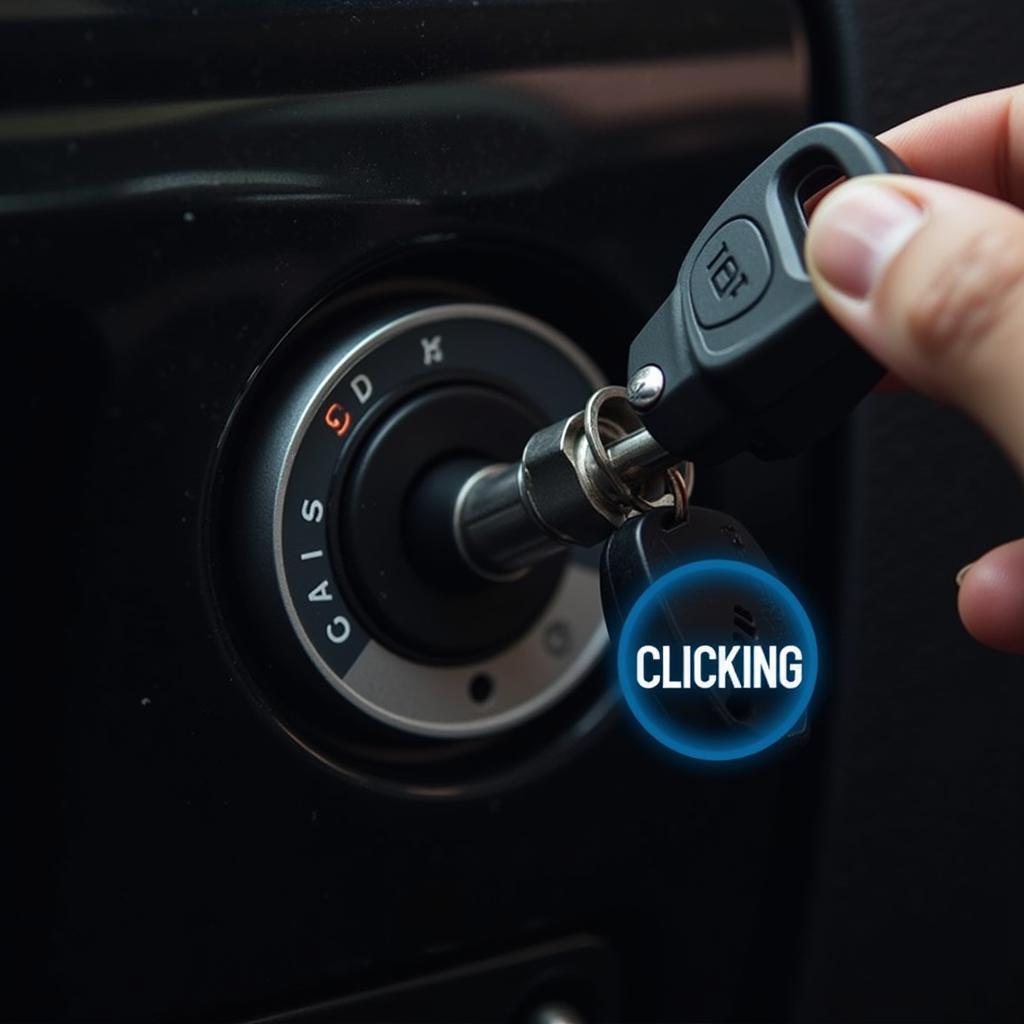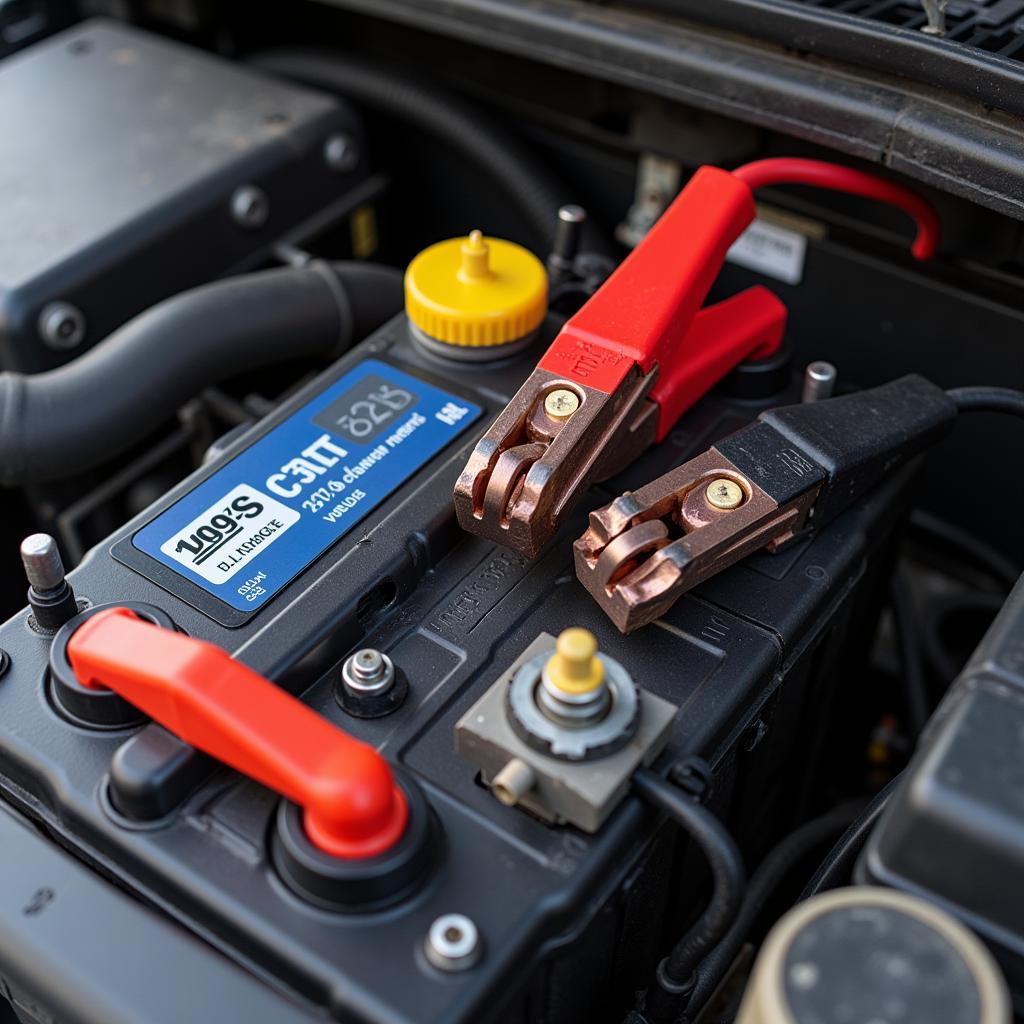A failing car battery can be a major inconvenience, leaving you stranded at the worst possible moment. Recognizing the symptoms of a failing battery is crucial to avoid such situations. This guide will walk you through the most common signs of a failing battery, helping you diagnose the problem and take appropriate action.
Recognizing the Red Flags: Common Symptoms of a Failing Battery
Several key indicators can point to a failing battery. While some are obvious, others can be more subtle and require a closer look. Learning to identify these symptoms will save you time, money, and frustration.
Slow Engine Crank
One of the most telltale symptoms of a failing battery is a slow engine crank. When you turn the key, the engine cranks slowly or struggles to turn over. This indicates the battery is struggling to provide enough power to start the engine. This could also be a sign of a failing starter, but a battery test can easily pinpoint the source of the problem.
Dim Headlights
Another common symptom is dimmed headlights, especially when the engine is idling. If your headlights are significantly dimmer than usual, particularly at low RPMs, your battery may be nearing the end of its lifespan.
Clicking Sound When Turning the Key
A rapid clicking sound when you turn the key is another strong indicator of a failing battery.  Car Ignition with Clicking Sound This clicking sound signifies that the battery doesn’t have enough power to engage the starter motor.
Car Ignition with Clicking Sound This clicking sound signifies that the battery doesn’t have enough power to engage the starter motor.
Other Signs Your Battery is Dying
Beyond the primary symptoms, several other clues suggest a battery problem. These can be less obvious but equally important to address.
Electrical Issues
A failing battery can affect various electrical components in your vehicle. You may experience issues with power windows, interior lights, radio, or other accessories. [how to remove battery from key fob](https://cardiagtech.com/how-to-remove-battery-from-key fob/) If these systems are malfunctioning or operating intermittently, a weak battery could be the culprit.
The Check Engine Light
While the check engine light can illuminate for various reasons, a failing battery is one possibility. A modern car’s computer relies on a steady voltage supply, and a weak battery can disrupt this, triggering the check engine light.
Swollen Battery Case
A physically swollen or bloated battery case is a serious sign of internal damage. This is often caused by excessive heat or overcharging. If you notice this, replace the battery immediately as it poses a safety risk.
How Can I Test My Car Battery?
Testing your car battery is relatively simple. You can use a multimeter to check the voltage or take your car to a local auto parts store for a free battery test.
Expert Insights: John Smith, Automotive Electrical Engineer
“Regular battery maintenance is often overlooked,” says John Smith, an automotive electrical engineer with over 20 years of experience. “Simple checks, like ensuring clean terminals and proper charging, can significantly extend a battery’s lifespan.”
“Don’t underestimate the impact of extreme temperatures on battery health,” adds Smith. “Both extreme heat and cold can accelerate battery degradation.”
Remote Diagnostics and Reprogramming: The Future of Car Repair
In the modern automotive landscape, remote diagnostics and reprogramming are becoming increasingly prevalent. These technologies allow technicians to diagnose and fix certain vehicle issues remotely, saving time and offering greater convenience. how to reprogram toyota key fob This can be especially helpful in situations like key fob reprogramming.
Conclusion
Recognizing the symptoms of a failing battery is crucial for maintaining your vehicle and avoiding unexpected breakdowns. By understanding the common indicators and taking proactive steps, you can ensure a smooth and reliable driving experience. Remember to perform regular checks and consult a qualified technician if you suspect a battery problem. Addressing battery issues promptly will save you time, money, and the hassle of being stranded with a dead battery.
FAQ
-
How long does a car battery typically last? A car battery typically lasts between 3 to 5 years.
-
Can I jump-start a car with a completely dead battery? While possible, jump-starting a completely dead battery might not be effective and could indicate a deeper issue.
-
What causes a car battery to fail? Several factors contribute to battery failure, including age, extreme temperatures, excessive vibration, and parasitic drains.
-
How can I prevent my car battery from failing prematurely? Regular maintenance, such as cleaning terminals and checking the charging system, can help extend battery life.
-
What should I do if my car battery fails while driving? If possible, safely pull over to the side of the road and call for roadside assistance.
-
Is it safe to touch a car battery? While generally safe, it’s best to avoid touching the battery terminals directly, as they can carry a charge.
-
Can a failing battery damage other car parts? Yes, a failing battery can potentially damage the alternator or starter.

